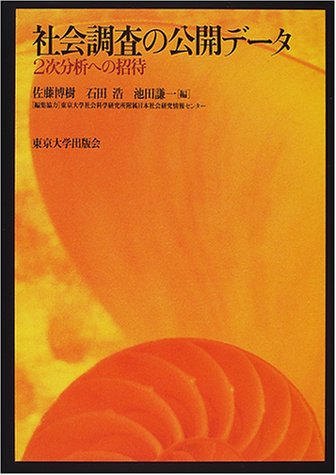2 0 0 0 OA 太陽炉を利用したマグネシウムによる二酸化ケイ素の還元とその教材化
- 著者
- 植田 和利 伊東 和彦 上原 誠一郎 佐藤 博樹
- 出版者
- 一般社団法人 日本科学教育学会
- 雑誌
- 科学教育研究 (ISSN:03864553)
- 巻号頁・発行日
- vol.40, no.1, pp.39-45, 2016 (Released:2016-04-05)
- 参考文献数
- 7
- 被引用文献数
- 1
We produced a pure Si substance directly from a SiO2-Mg system using the solar furnace in the air. After the reagent of SiO2-Mg system was melting for 2–3 minutes under the solar furnace, Si grains (~1–3 mm) surrounded by forsterite (Mg2SiO4) were produced as the reaction product. From the phase diagram of MgO-SiO2 system, it is considered that the reaction, 2 SiO2 + 2 Mg → Si + Mg2SiO4, occurred. In this reaction, the existence of Mg2SiO4 melt might have protected Si reduced from SiO2 against O2 in the air, and might have made Si grain grow larger in the melt. In the reduction of SiO2 by Mg, we could have obtained Si grains visible to the naked eye within a few minutes under the solar furnace. Being a simple and short experiment this experiment is suitable for science students.
1.ホワイトカラーの業績管理の方法には三種類ある。第一の方法は売上高、利益率・高、費用など経営指標を部、課レベルに分割し、その達成状況を定期的にモニターし、進捗の遅れを発見した場合にその原因を探り、対策を講ずるというものである。第二の方法は経験的に割り出された目標値(たとえば開発にかかる時間等)を実績値と常に比較し、乖離が発見された場合にその原因を探り、対策を講じるというものである。第三の方法は、スタッフ部門などでみられるが、具体的な数字目標なしに定性的目標(定性的な年度計画など)の達成状況を定期的にモニターするというもので、もっとも緩やかな方法である。これらの方法で部門の成果を定期的に測定し、計画の遅れや乖離を発見し、対策を考案、実施している。これが部門別業績管理の仕組みと実際である。いわゆる成果主義的人事管理は、こうした部門別業績管理のありようを前提として設計され、目標達成に責任を負える立場にいる者(課長以上の管理職)を対象にしている場合にのみ、順調に機能する。もっとも、部門別業績管理の仕組みがきちんと出来上がっていれば、それと別の論理によって人事管理制度をつくりあげることは可能であり、私たちの事例でもそうしたケースはみられた。2.成果主義的人事管理はホワイトカラー個々人を評価することにつながり、これに呼応するように自らのキャリアを自らが開拓するホワイトカラーも増えつつある。社会人大学院は彼らにとって貴重なステップをなす。社会人大学院修了者の半数以上が外部労働市場への志向をもち、定着志向の者であっても企業内でのキャリア展開に大学院教育の経験が反映されていることを認めている。3.今後、本を2冊程度、刊行する予定である。
1 0 0 0 太陽炉を利用したマグネシウムによる二酸化ケイ素の還元とその教材化
- 著者
- 植田 和利 伊東 和彦 上原 誠一郎 佐藤 博樹
- 出版者
- 一般社団法人 日本科学教育学会
- 雑誌
- 科学教育研究 (ISSN:03864553)
- 巻号頁・発行日
- vol.40, no.1, pp.39-45, 2016
We produced a pure Si substance directly from a SiO<sub>2</sub>-Mg system using the solar furnace in the air. After the reagent of SiO<sub>2</sub>-Mg system was melting for 2–3 minutes under the solar furnace, Si grains (~1–3 mm) surrounded by forsterite (Mg<sub>2</sub>SiO<sub>4</sub>) were produced as the reaction product. From the phase diagram of MgO-SiO<sub>2</sub> system, it is considered that the reaction, 2 SiO<sub>2</sub> + 2 Mg → Si + Mg<sub>2</sub>SiO<sub>4</sub>, occurred. In this reaction, the existence of Mg<sub>2</sub>SiO<sub>4</sub> melt might have protected Si reduced from SiO<sub>2</sub> against O<sub>2</sub> in the air, and might have made Si grain grow larger in the melt. In the reduction of SiO<sub>2</sub> by Mg, we could have obtained Si grains visible to the naked eye within a few minutes under the solar furnace. Being a simple and short experiment this experiment is suitable for science students.
- 著者
- 佐藤 博樹 矢部 光保 山村 悦夫
- 出版者
- JAPAN SECTION OF THE REGIONAL SCIENCE ASSOCIATION INTERNATIONAL
- 雑誌
- 地域学研究 (ISSN:02876256)
- 巻号頁・発行日
- vol.28, no.1, pp.1-14, 1997
- 被引用文献数
- 3
In order to reduce municipal waste generation at the source, it is important for the recycling rate and in-home disposal rate to rise. With regards to recycling, with the implementation of new systems in recent years, a generally supportive social consensus has formed. On the other hand, with regards to raising the in-home disposal rate, because of many factors that vary from region to region, it is difficult to achieve uniform progress in this area across the nation. Moreover, apart from regional differences there is also a certain amount of user opposition to be expected against efforts to transfer some of the burden of waste management costs to the individual user. In order for policy in this area to make progress, along with continuous development of waste management technology, it is important to make users aware of the costs involved and encourage them not just to consider waste management as a no-cost municipal service.<br>Using the Double-Bounded DCCVM (Dichotomous Choice Contingent Valuation Method), we have attempted to elucidate the value in monetary terms at which the users, or the demand side, estimate household solid waste disposal services to be worth-services which have been treated up until now as non-marketable. We have also attempted to elucidate factors that influence users' assessment of the benefit value of the services and to what degree these factors influence their willingness to pay for them.<br>According to the results of this evaluation, the following points became clear. First, since waste management service is considered in economic terminology, as a superior goods of high necessity, the amount respondents were willing to pay tended to increase with income level. Secondly, there was a tendency for respondents who actively practiced waste reduction and who recognized waste disposal problems as serious to be more willing to pay for such services than those who did not. Also, respondents living in single dwelling unit homes displayed a lower willingness to pay than those living in multiple dwelling unit complexes such as apartments. Third, the factor of possible extended future benefit from the services (long term residence in Kitami City), proved to have a significant influence on the amount respondents were willing to pay for waste disposal services. Fourth, when the average amount that respondents indicated in the survey, they were willing to pay for waste disposal services was compared to the actual expenditure per household of Kitami City on household solid waste disposal, the former was found to be higher by an estimated absolute value of equivalent surplus of ¥12, 167 per household per year.
1 0 0 0 OA 公的な表彰・認定が中小企業の人材確保に与える効果 ―雇用主ブランディングの観点から―
- 著者
- 梅崎 修 島貫 智行 佐藤 博樹
- 出版者
- 特定非営利活動法人 組織学会
- 雑誌
- 組織科学 (ISSN:02869713)
- 巻号頁・発行日
- vol.54, no.1, pp.2-15, 2020-09-20 (Released:2020-10-08)
- 参考文献数
- 46
本稿は,公的な表彰・認定の取得を第三者機関による雇用主ブランディングと位置づけて,表彰・認定の取得数が採用時の人材確保と従業員の定着に与える効果を検討した.中堅・中小企業を対象とした質問票調査データを用いて統計的に分析した結果,表彰・認定の取得数が採用者の質的確保と従業員の離職率低下に貢献することが示された.大企業に比べて人材確保に劣る中小企業は第三者機関の雇用主ブランディングを活用することが有効になる.
1 0 0 0 OA 合成Fe-Mgカンラン石単結晶の波動累帯構造
- 著者
- 西山 忠男 宮崎 一博 伊東 和彦 佐藤 博樹 金澤 英樹 玉田 攻 北澤 恒男 小池 正義
- 出版者
- Japan Association of Mineralogical Sciences
- 雑誌
- 日本鉱物学会年会講演要旨集
- 巻号頁・発行日
- pp.47, 2004 (Released:2005-03-10)
Ito et al.(2003)において合成されたカンラン石単結晶中に見られる波動累帯構造の詳細を報告し,成因を考察する.これまで2成分系において成長速度の濃度依存性を組み込んだ拡散境界層モデルが提唱されているが,われわれの場合組成変動幅が小さいので問題にならず,既存のモデルでは説明不可能である.ここではメルト中の拡散が2成分系ではなく3成分系で起こると考え,FeOとMgOの拡散係数の大きさが有意に異なる場合はSiO2のアップヒル拡散が生じることを示す.カンラン石の成長によりこのようなアップヒル拡散が生じると,拡散境界層におけるメルト組成は,カンラン石のバルク組成から外れることになり,それにより成長が阻害される.SiO2の濃度勾配が解消され,拡散境界層のバルク組成が再びカンラン石のそれに近くなると成長が再開する.このようなフィードバック機構により波動累帯構造が形成されると考えられる.
1 0 0 0 太陽炉を用いたルビーの合成
- 著者
- 植田 和利 伊東 和彦 上原 誠一郎 宮崎 一博 佐藤 博樹
- 出版者
- 公益社団法人 日本化学会
- 雑誌
- 化学と教育 (ISSN:03862151)
- 巻号頁・発行日
- vol.61, no.12, pp.610-611, 2013
1 0 0 0 社会調査の公開データ : 2次分析への招待
- 著者
- 佐藤博樹 石田浩 池田謙一編
- 出版者
- 東京大学出版会
- 巻号頁・発行日
- 2000
- 著者
- 佐藤 博樹
- 出版者
- 関西社会学会
- 雑誌
- フォーラム現代社会学 (ISSN:13474057)
- 巻号頁・発行日
- no.11, pp.103-112, 2012-05-26
データアーカイブの基本的な機能はマイクロデータを収集、整理、保存、提供することにある。それ以上に重要な機能は、社会科学におけるマイクロデータに基づく実証研究の「再現性」を担保する研究環境を提供することにある。日本では、毎年数多くの社会調査が研究者だけでなく、新聞社や政府など様々な機関で実施されており、調査大国とも言われる。しかし、調査データに基づく研究論文や報告書が刊行された後に、収集された調査データは保存されることなく散逸する場合が少なくなかった。その背景には、マイクロデータを収集、整理、保存し、それを再分析を希望する利用者に提供する組織が存在しなかったことがある。本稿では、マイクロデータを保存し、かつ再分析を希望する利用者にマイクロデータを提供することの社会的な意義とマイクロデータの収集、整理、保存、提供の作業を行うデータアーカイブの役割について説明するとともに、東京大学社会科学研究所の社会調査・データアーカイブ研究センターが運営するSSJデータアーカイブの現状と課題について紹介する。

